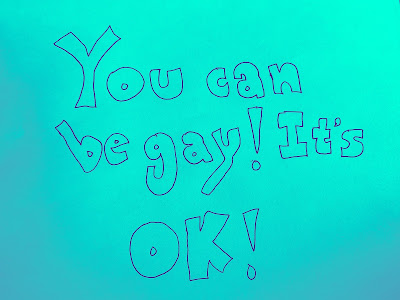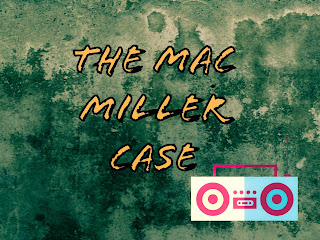The Surge of LGBTQ Patriotism in American Society! A Structural Component That Maintains Liberty. The Radiation of Queer Criminology and its Good for the United States
Queer Criminology, Constitutional Rights,
and the Alleged Disrespect
Megan Rapinoe drew
attention because of her kneeling during the playing of the national anthem due
to her disdain toward inequality in the United States. This caused an international uproar about the
hypocrisy of the United States’ history and current sociological and
governmental practices. Rapinoe – a well
respected soccer player – delivered notions to civilians that encompass proper
comprehensions of inequality, false understandings of democracy, and how poor
lawmaking should be challenged when it is on the brink of becoming enacted or
already is set into place. Yet, a
significant amount of blowback was given out about her patriotism and
dedication to virtues that are encompassed in living in the United States. The negative media attention was swayed in a
manner that criminalized freedom of speech and demonized anyone who agreed with
the statement that Rapinoe was making, and, in turn, inferred that patriotism
in the United States includes being subservient to conservative Christian
virtues and biased understandings of the First and Fourteenth Amendments. Because of this, opposing parties who blasted
Rapinoe created a discussion that is unnecessary given the provisions within
the First and Fourteenth Amendments.
Elaborating more, freedom
of speech and protection for it are the fundamental concepts that the United
States was founded upon. Thus, the claim
of a lack of respect for these American virtues that takes place when icons
like Rapinoe deliver their disdain toward biases that are supposed to be checked
and already set into place is absurd and, most importantly, not in line with
the concepts of freedom of speech and equal protection of the law even with the
allowed ability to disagree with the specifics of such acts that radiate
beliefs and values. In other words, the
opposition to expelled patriotism by Rapinoe and the alike is not inline with
American values of freedom of speech and equal protection of the law because
the biases that exist. Case in point, if
the prejudices did not exist then there would no merit to peaceful
demonstrations – kneeling during the national anthem and other decrees about
societal biases – but the fact is that the prejudices do exist. So, the opposing beliefs are not necessarily proper
contrary forms of freedom of speech and equal protection of the law given the
virtues that the United States claims to be operating on. The discrimination toward the LGBTQ community
is an example of this and the protestations on international platforms emanates
a structural component that maintains liberties in the United States. Without such activities, many discrepancies
would arise that bypass the notions found within freedom of speech and equal
protection of the law clauses that are engraved in American culture.
All of the
above-mentioned falls in the realm of the field of queer criminology. Hatred and insecurities about perceived
conventionalism and the analyzation of how such processes disturb society’s
progress are the underlying premises for this recent branch of criminology. Media attention about how iconic figures in
the United States – especially individuals who are part of the LGBTQ community –
are, again, disgracing the United States and, simply put, untrue and the media
deliverances that suggest that this is unpatriotic are incorrect and appear to be behaviors that
include insecurities and hatred toward sexual identifications and activities.
The News
Media is Not Always Right
News media – especially in
television format – has transitioned from presenting basic facts about current
events to political and opinionated commentary about current events in our society. So-called television journalists are now
political utilities and talk show hosts that rarely cover the full breadth of
current events. Rather than simply
depicting news is a basic format that allows an audience to learn about it in an
unbiased manner, news television networks present short stories and then
deliver their and their guests’ opinions about the covered event. Furthermore, the television news networks are
bilaterally divided by their sponsorship of a political party. That is, the covered current events and
commentary is all based on the desired output of the political sponsorship. Regarding LGBTQ issues in contemporary
society, the liberal news media networks will cover events like Rapinoe’s
protestations in a favorable manner; whereas conservative television programming
will typically depict the protestations in a negative fashion and produce
commentary that backs-up their erroneous claims of unpatriotic engagements.
Regardless of political
affiliation and favorable news media, the displays that include derogatory remarks
about individuals exercising their constitutional rights and who are associated
in the LGBTQ community are a prejudiced-double standard. Elaborating more, the First and Fourteenth
Amendments allow parties to peacefully redress their government and to do so in
a manner that does not subject them to government prosecution. Incorporating international platforms into
such practices is an intelligent decision by the protestors and this, for some unintelligent reason, is part of
the critical media’s dissent toward the protestations about inequalities in the
United States. Conservative media is infamously
known for projecting these double standards into society and, in turn,
discouraging people from participating in their constitutional rights and even
broadcasting false notions about what they should include. Moreover, the conservative media even subtlety
infers that such participants should be subjected to social out-casting and
governmental persecution. Once more, these
projections are a farcical projection of what the freedom of speech and equal
protection of the law concepts include in the United States.
The
Surge of LGBTQ Patriotism is a Good Thing
Seeing celebrities like
Megan Rapinoe and the alike challenging poor understandings of equality in the
United States allows civilians to determine which biases are apparent and how
they should be dealt with. In addition
to this, the protestations teach the younger generations not only the
fundamental concepts in the First and Fourteenth Amendments, but also how
equality in the United States has been biasedly distributed and that true
versions of equality should be striven for.
From a perspective that includes kind-hearted living, there is nothing
wrong about this, and anyone who disagrees has hate in their heart and believes
that innate characteristics should be reined in on by the criminal justice system
and that specific individuals should be deemed as deviants because of their protected rights. In contrast, teaching
hate via biased personal views and through news media is contradictory to
American values of equality and goes against the ideas that are conveyed in the
Constitution. Finally, suggesting that
freedom of speech and equal protection of law includes dissenting opinions is not a
valid argument when the hatred by such parties is fully understood and is not even
close to being congruent to the notions found within the First and Fourteenth
Amendments in the Bill of Rights.
The Contradiction
Has Been Noticed, Again
The United States has a
long history of contradictory behaviors when it comes to equality and freedom
of speech, and the recent protestations by Megan Rapinoe and the alike figures
has promulgated a sincere appreciation for proper government in respect to the
concepts of freedom, justice, and equality that the United States advertises to
the world. The embarking of opposing viewpoints to this form of protesting are no longer constitutional, and the allowed evolution of law by the United
States courts and legislative branch have proven this ideation to be correct. The only questions that needs to be asked is
this: What has the First and Fourteenth
Amendments evolved to? Does it include
protestations about inequality on an international platform? The answer is yes.
 |
| Photo Credit: Benjamin J. Bolton |


Comments
Post a Comment